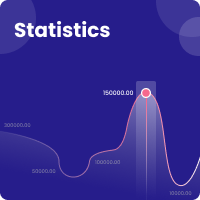Conceptualizing dialogue between organizational culture and learning
Abstract
In reviewing current research, it has been discussed how an organization creates competitiveness dynamics different from other, linking with the ability to learn. It has been widely discussed ontological and epistemological aspect of organizational learning, materializing in practice that leads to knowledge management, however, it is essential to emphasize the role of sociocultural approach in learning processes in organizations, in order to find the best model to trigger organizational learning processes. This paper reviews, analyzes and proposes possible links between learning constructs and organizational culture as a basis for knowledge management, recognizing the organization as a knowledge diffusion unit.References
Allaire, Y. y Firsirotu M. (1984). Theories of organizational culture. Organization studies. 5(3), 193-226.
Argyris,C. (2001) Sobre el aprendizaje organizacional. 2ª. ed., México: Editorial Oxford University Press.
Argyris, C. y Schön, D. A. (1978). Organizational learning II. Theory of Action Perspective. Adisson-Wesley.
Alok, K. (2012). Organizational Learning: Trends in the Social Construction of a Field. The Indian Journal of Industrial Relations, 48(2), 247.-258.
Chiva, Grandío, Alegre (2008). Adaptive and generative learning: Implications from complexity theories. International Journal of Management Reviews, Journal Compilation. Blackwell Publishing Ltd and British Academy of Management, 114, 129.
Cook, S. y Seely, J. (1999). Bridging epistemologies: The generative dance between organizational knowledge and organizational knowing. Organization Science, 10(4), 381-400.
Crossan, M.; Lane, H. y White, R. (1999). An Organizational Learning Framework: from Intuition to Institution. Academy of Management Review, 24(3).
Crossan, M.; Maurer, C. White, R. (2011). Reflections on the 2009 AMR decade award: do we have a theory of organizational learning? Academy of Management Review, 38(3), 446-460.
Easterby-Smith, Lyles y Tsang (2008). Interorganizational Knowledge Transfer: Current Themes and Future Prospects. Journal of Management Studies, 45(4), 677-690.
Easterby-Smith, M. y Prieto, I. (2008). Dynamic capabilities and knowledge management: an integrative role for learning? British Journal of Management, 19, 235-249.
Gairín, J. (2000). Cambio de culturas y organizaciones que aprenden. Educar, 27, 31-85.
Geertz, C. (2000). La interpretación de las culturas. 10ª Edición. España: Gedisa.
González, W. (2003). Racionalidad, historicidad y predicción en Herbert A. Simon. España: Josman Press.
Gourlay, S. (2006). Conceptualizing Knowledge Creation: A Critique of Nonaka ́s Theory. Journal of Management Studies, 43(7), 1415-1436.
Guillen, I.; Montoya, M., Rendón, M. y Montaño, L. (2002). Aprendizaje y cultura en las organizaciones. Un acercamiento al caso mexicano. Administración y Organizaciones, 4(9), 53-83.
Habermas, J. (1982). Conocimiento e interés. Madrid: Ed. Taurus.
Hessen, J. (2008). Teoría del conocimiento. México: Ed. Época.
Mayorca, R., Ramírez, J. Viloria, O. y Campos, J. (2007, julio-diciembre). Evaluación de un cuestionario sobre organizaciones que aprenden: adaptación, validez y confiabilidad. Revista Venezolana de Análisis de Coyuntura, XIII(002).
Magallón, M. (2004). La figura del cambio organizacional en la construcción de la teoría de la organización. Evolución y nuevas perspectivas. Los estudios organizacionales en México. Universidad Autónoma Metropolitana.
Nonaka, I. (1994). A dynamic Theory of Organizational Knowledge Creation. Organization Science, 5(1), 14-37.
Nonaka, Ikujiro y Hirotaka Takeuchi (1999). La organización creadora de conocimiento. Cómo las compañías japonesas crean la dinámica de la innovación. 1ª. Ed., México: Editorial Oxford University.
Offenbeek, M. (2001). Process and outcomes of team learning. European Journal of Work and Organizational Psychology, 10, 303-317.
Polanyi (2009). The tacit dimension. The University Chicago press.
Senge, P. (2006). La quinta disciplina: el arte y la práctica de la organización abierta al aprendizaje. Granica.
Shein, E. (1988). La cultura empresarial y el liderazgo. Barcelona: Ed. Plaza and Janes.
Smircich, L. (1983). Concepts of culture and organizational analysis. Administrative Science Quaterly, 28(3), 339-358.
Snowden, D. J. (2000). Organic Knowledge Management. Knowledge Management, 3(7, 9 y 10).
Vera, M. y Berdrow, I. (2003). Organizational learning and strategic renewal. Strategic Management Journal, 24, 1087-1105.
Vera, D. y Crossan, C. (2006). Organizational Learning and Knowledge Management: Toward and integrative framework. Chapter 7. Handbook of organizational learning and knowledge management. Ed. Easter-by Smith, M. y Lyles, M.
Visser, M. (2007). Deutero-learning in organizations: a review and a reformulation. Academy of Management Review, 32(2), 659-667.










